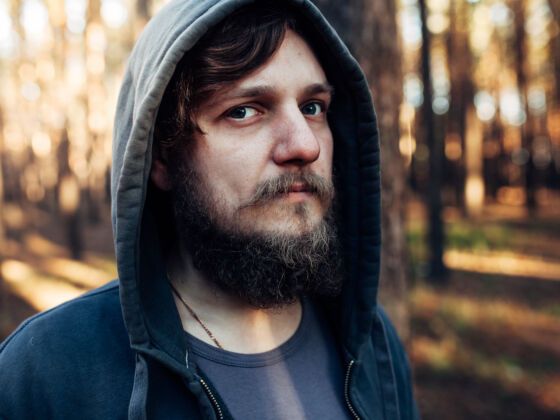With his hard peaked blue cap and golden beard, Yehoshua November looks like he’s dressed as Van Gogh’s Postman for Purim.
Purim is the Jewish carnival holiday that commemorates the saving of the Jews of Persia (Iran) by Queen Esther from the death decree of King Ahasuerus’s evil advisor, Haman. On this day, Jews don costumes and become other people, even non-Jews. Maybe that’s how freedom should be memorialized, as the unburdening of the caged self in the act of becoming another.
